READY TO GET STARTED?
REQUEST A FREE ESTIMATE
Fill out the form below or call (888) 466-7849 for a free, no-obligation estimate.
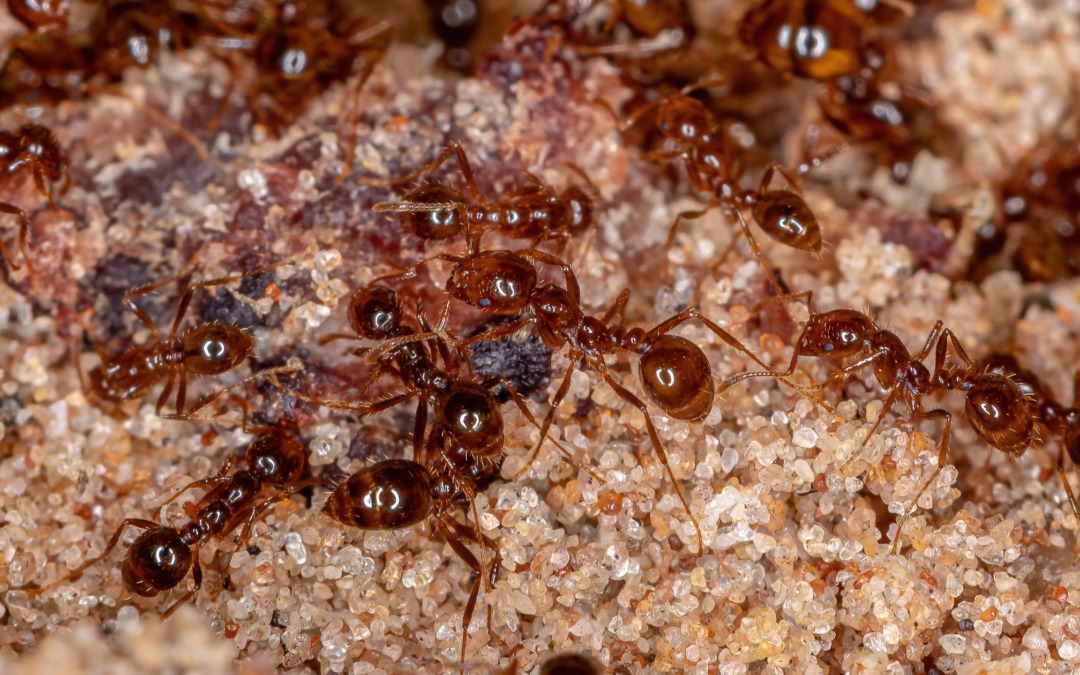
Fire ants, with their fiery stings and relentless mounds, can quickly turn your yard into a battleground. For Georgia homeowners, dealing with these aggressive pests is an ongoing challenge. However, with the right strategies and tools, you can regain control of your outdoor space and enjoy it without fear of fire ant attacks. In this guide, we’ll explore the signs of fire ants, the dangers they pose, what to do if you’re bitten, and most importantly, how to effectively eliminate them from your yard.
Identifying a fire ant infestation is crucial for prompt action. Look out for telltale signs such as:
Beyond their painful stings, fire ants pose several risks:
If you or someone else is stung by a fire ant, follow these steps:
Effective fire ant control requires a multi-faceted approach. Here are some strategies to consider:
Once you’ve eradicated fire ants from your yard, take steps to prevent future infestations:
In conclusion, controlling fire ants in your Georgia yard requires diligence and a combination of tactics. By identifying signs of infestation, understanding the dangers they pose, and implementing effective control measures, you can reclaim your outdoor space from these troublesome pests. For fast-acting and reliable fire ant control, trust the expertise of a professional pest control company near you to safeguard your home and family.
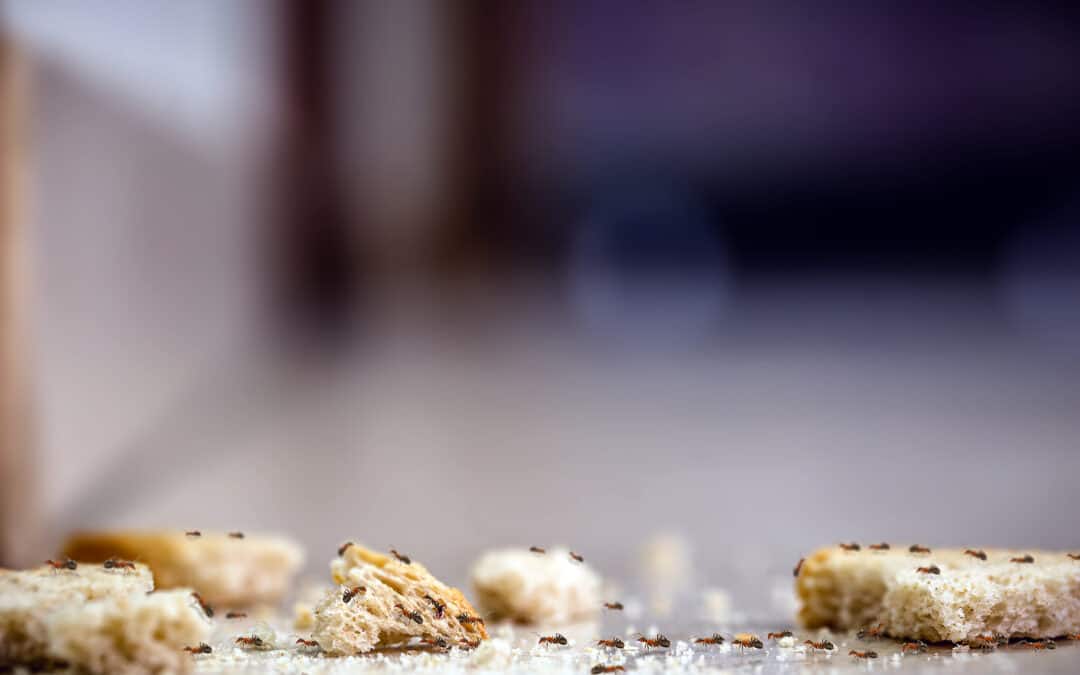
If you have never encountered ants in your Alabama home, then count yourself lucky. These household pests have a knack at being some of the most annoying pests to infest – taking over your pantry, kitchen, bathroom, you name it! Here are the best methods of ensuring your home is never taken over by ants!
It’s not surprising to hear that ants prefer to invade kitchens; after all, they provide food, water, and everything ants (and other pests) need to survive. Bathrooms, bedrooms, living rooms, basements, inside walls, and in or around air conditioning and heating units are also known to attract these nuisance pests.
Moisture and standing water are big attractants for ants and many other pests. Be sure to repair any leaky pipes, and routinely check for excess moisture. If your basements, crawlspaces, or attics appear to be damp, then utilize a dehumidifier. On the outside of your home, ensure gutters and downspouts are functioning properly.
Keep your kitchen tidy by cleaning up after cooking and eating to lessen the chance of crumbs being left out. Utilize airtight containers to keep opened food items safe from these tiny pests. Also, make sure to clean up pet food that’s left out, as this is also an attractant for pests.
If ants are finding their way inside, then that means there are entry points on the exterior of your home. Take the time to find where ants are making their way indoors and seal any cracks, gaps, or openings. Utility pipes are usually the number one place where ants can find any potential openings.
Reach out to your local pest control company and they can provide an ant-free home!
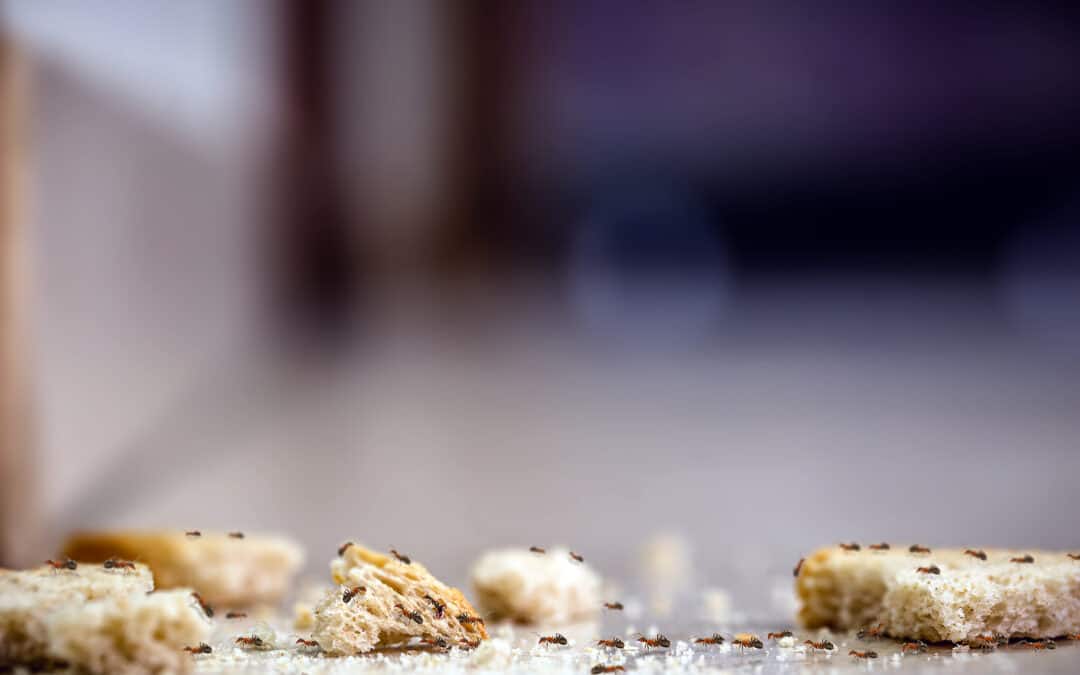
As the weather starts to warm up, many of us look forward to spring and all that it brings. Unfortunately, one of the things that it brings is ants. In the springtime, these household pests become more active and start to look for sources of food and water. If you’re not careful, you may find yourself dealing with an infestation. Let’s discuss the different types of ants you’ll encounter in the springtime and how to prevent them from returning.
If an ant problem has become more than you can handle, be sure to give your local pest control company a call for a free inspection today!
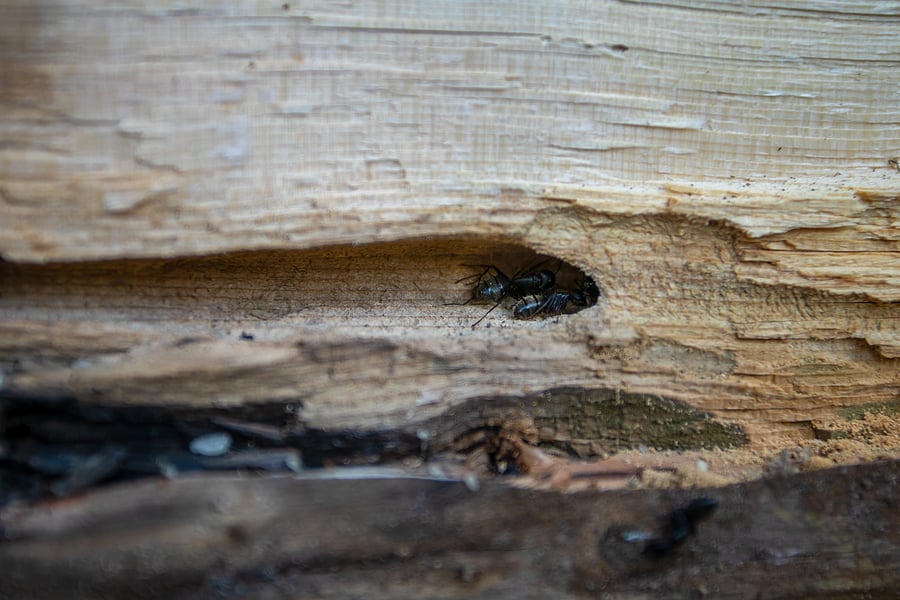
Ants are small, annoying, and can sometimes lead to health risks. Finding them infested in your home is always alarming! There are several ant species found in the Fort Myers area, including ghost ants, white-footed ants, and carpenter ants. Once these pests infest your home, it can be extremely difficult to get rid of them. Check out our top 3 signs you need ant control for your home.
Carpenter ants are known to nest in damaged wood, especially wood that is damp from water. Their damage includes excavating wood to create their nests and creating holes. If you notice small trails of sawdust around, inside, or outside the home, it’s likely that you have ants.
Look for piles of sawdust near wooden beams, window ledges, skirting boards, and wood flooring. If you find sawdust or even the holes they create, it’s a sign that carpenter ants have infested.
Did you know that some ant types have wings for a short time? These ‘flying ants’ will usually swarm during the summer when a younger queen leaves the nest to start their own colony. If you notice discarded wings on the floors, windowsills, or doorsills, an ant colony could be inside the home.
One of the more serious signs of an ant infestation is noticing that your home’s wood structures are crumbling when touched. This is a sign that the home structure is weakened, sometimes caused by ants. Often, the wood can look normal from just looking at it, but a tell-tale sign if ants have infested is finding hollow-sounding wood that is weak under pressure.
To prevent ants, utilize these preventative measures throughout your home,
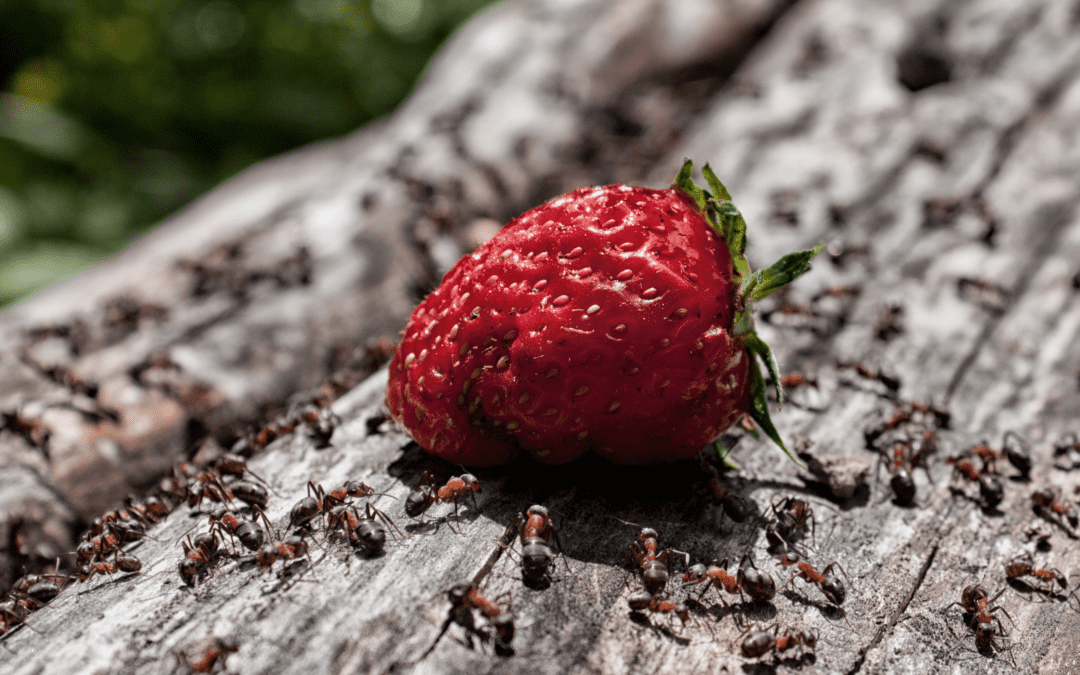
Having an ant infestation is a nuisance to any homeowner, as it can be difficult to control them once they’ve found their way inside. These pests tend to infest areas such as the bathroom and kitchen, searching for a place to nest and a food source. Ants are sneaky pests, often finding their way inside our homes without us even knowing. Check out the top 3 ways you attract ants inside and how you can prevent them in the future.
Ants are very small, making it easy for these pests to get through the smallest hole or gap. Your home’s doors, foundation, windows, and even utility lines can have holes or gaps, creating a way inside for ants. Foundation gaps that aren’t solid concrete blocks can lead to spaces for ants to enter. Likewise, ants will enter through doors or windows that aren’t sealed properly. Take some time and inspect the home’s interior and exterior for these openings.
Did you know ants can travel inside your floors? These pests often establish routes underneath carpets, tiles, and hardwood, making it difficult to spot them entering! Ants will often utilize subfloors, which are made up of pieces of plywood that provide enough space for ants to get inside. Often, these pests will enter through the floors when they’ve spotted a food source, such as leftover crumbs on the floor.
Many times we can bring these pests inside our homes by mistake! Ants can gain access inside by homeowners bringing in a toy or yard item that was left outside long enough for an ant colony to establish inside it. Plants can also carry ants inside when we bring them into our homes for the winter. Other items ants have hitchhiked on include used furniture or appliances, storage boxes, hoses, and even groceries!
There are many opportunities for ants to get inside the home, but with some DIY preventative measures in place, you can help prevent a major infestation. Here are some easy tips on preventing ants:
If you notice an ant problem bigger than you can handle, contact your local pest control company, where they can identify entry points and recommend a treatment and prevention plan.